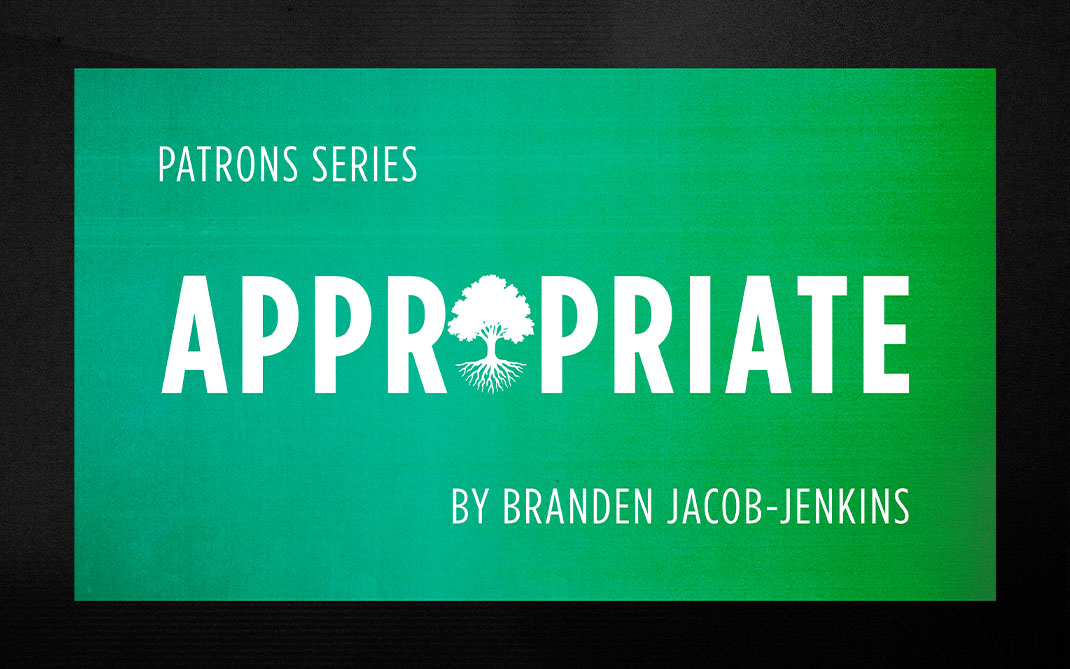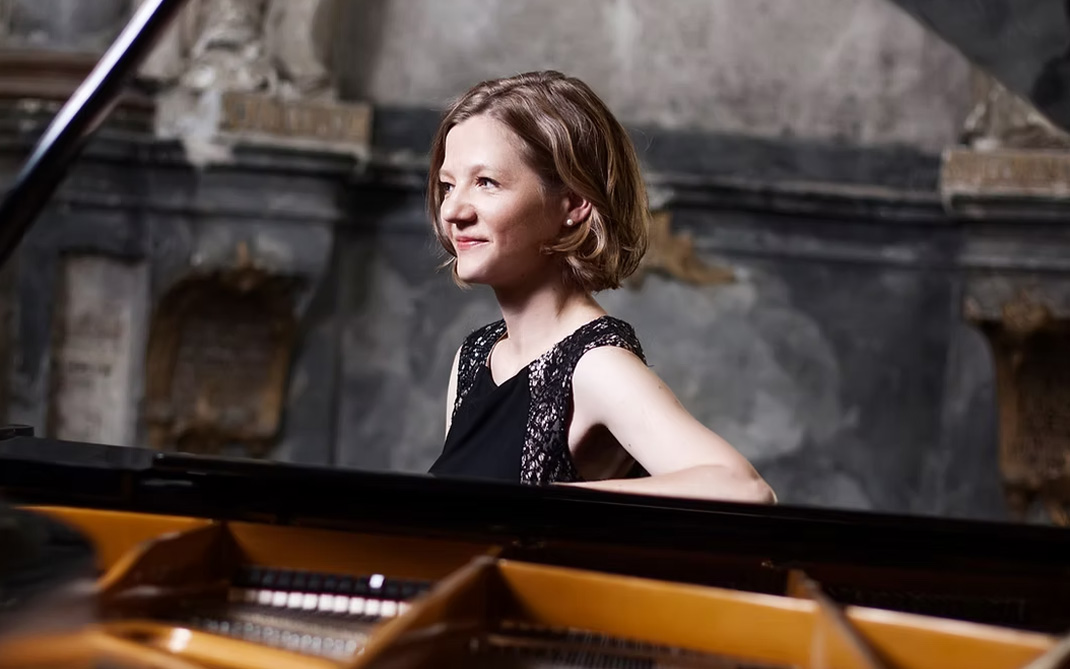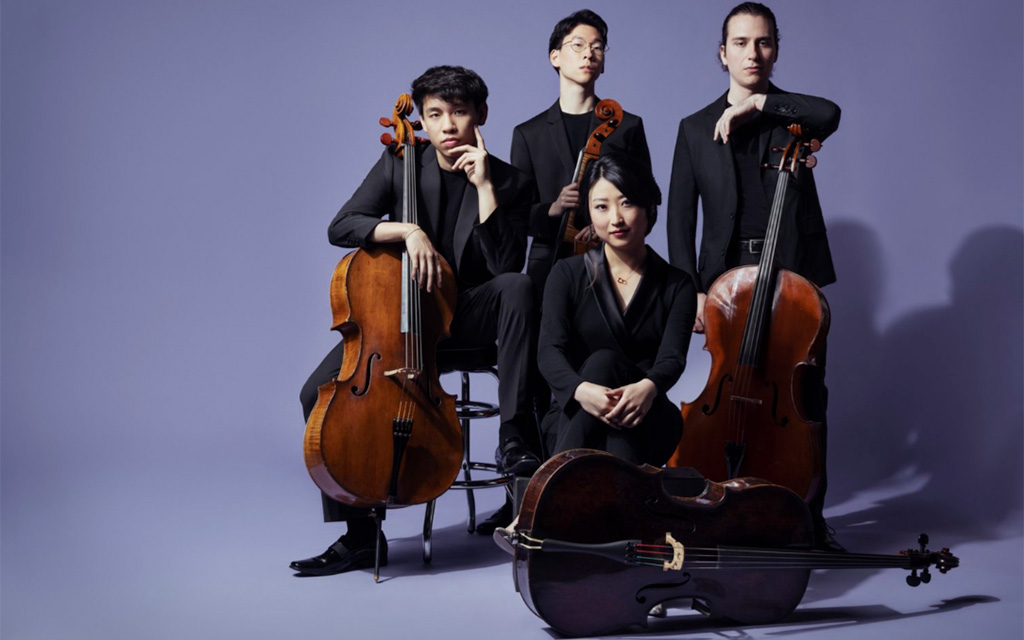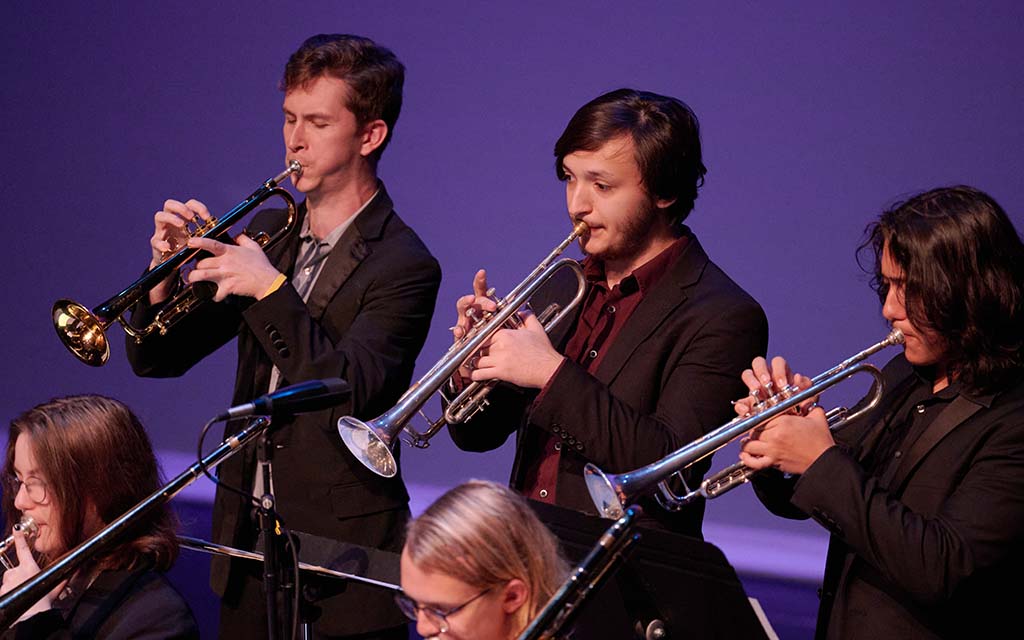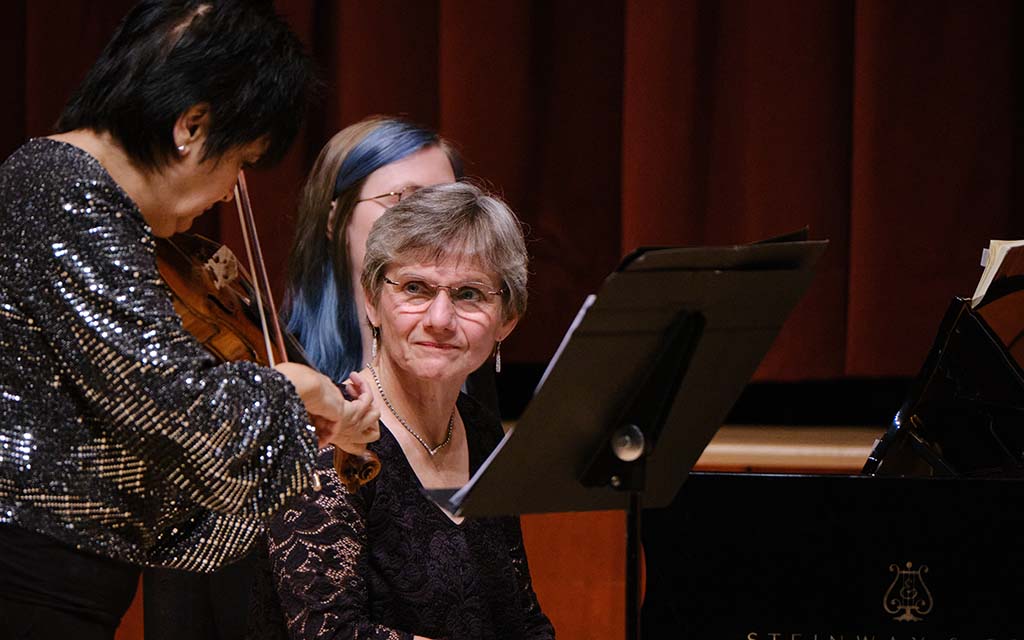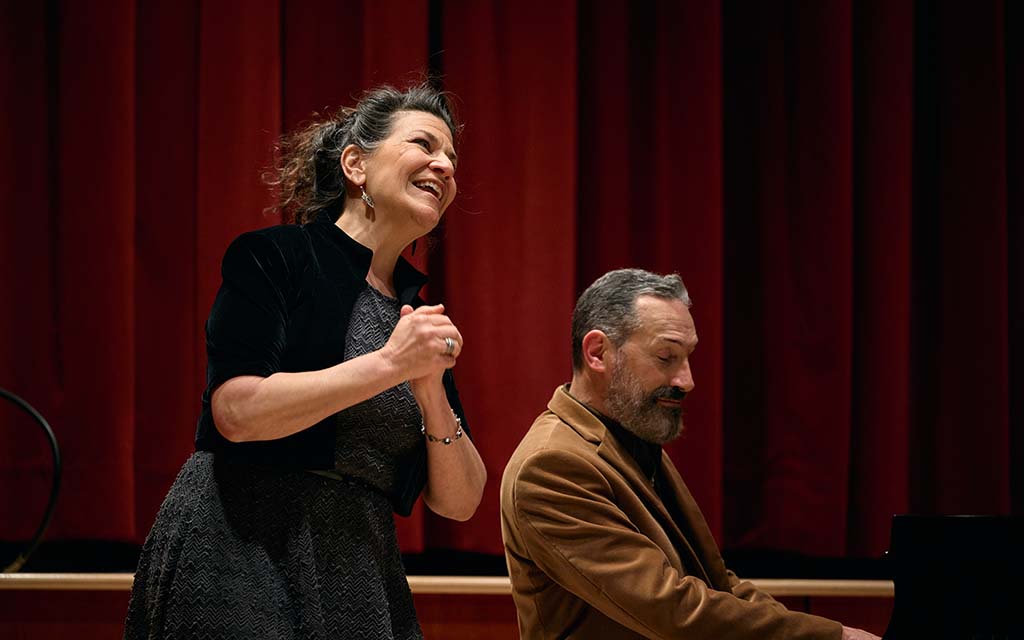Facilities Use Policy 402
| Policy 402 | Approved: August 3, 2021 |
| UNIVERSITY OF NORTH CAROLINA SCHOOL OF THE ARTS Facilities Use Policy Policy 402 |
|
| Source of Authority: | UNC Code § 702 |
| Revision Authority: | Board of Trustees |
| History: |
First Issued: February 17, 2011 Revised: December 7, 2012 Revised: December 9, 2016 Revised: August 3, 2021 Revised: February 18. 2025 |
| Related Policies: | Umstead Act, N.C.G.S. § 66-58; Alcohol Regulation 102; Animals on Campus Regulation 103; Business Continuity Plan Regulation 104; Emergency Management Plan Regulation 701; Improper Activities Reporting Regulation 114; Political Activities Regulation 116; Solicitation Regulation 204; Smoking Regulation 703; Use of the Chancellor’s Residence Policy 106; Use of the UNCSA Brand Regulation 122 |
| Responsible Offices: | Chancellor Administrative Cabinet |
| Effective Date: | February 18, 2025 |
I. Purpose
UNCSA’s facilities and grounds exist primarily to further the University’s educational mission. As a public institution, UNCSA also makes its facilities and grounds accessible to the larger community. To the extent that space is available, the University welcomes utilization of facilities for purposes compatible with the school’s mission. This regulation and its related procedures establish guidelines and priorities for facility use, scheduling, event management, charitable solicitation, and charges.
II. Scope
This policy covers all UNCSA campus facilities, outside areas on the UNCSA campus, spaces rented by UNCSA, and spaces rented to UNCSA.
III. Definitions
A. “Activity Coordinators” means individuals having the resources to coordinate activities successfully within departments or schools. A list of Activity Coordinators is contained in the Appendix to this policy and its associated procedures.
B. “Campus Image” means a still or moving image of UNCSA that is readily identified by the public as UNCSA property by architecture, landmarks, signage, sculptures, the presence of prominent individuals, mascot, the inclusion of logo, marks or any other means.
C. “Charitable Organizations or Groups” mean organizations to which contributions qualify as tax-deductible under of the Internal Revenue Code and which are not affiliated with the University.
D. “Commercial Use” means commercial exchanges, canvassing, selling, offering for sale, soliciting, or promoting the sale of any goods or services, including but not limited to any private lessons, on University premises.
E. “External Activities” or “Group C Activities” means
1. All other activities not included in Group A or Group B activities.
2. External Activities (Group C) include any activities by employees, faculty, and students that are conducted for pay or primarily for the benefit of individuals, as well as events hosted by commercial or charitable organizations.
F. “Reserving Offices” means those offices which reserve specified facilities. A list of Reserving Offices is contained in Appendix I to this policy and its associated procedures.
G. “Structure” includes, but is not limited to, statutes, plaques and monuments; props, signage and displays; shelters, such as tents, boxes, shanties and other enclosures; cages, stages and theaters; and other similar physical structures. The term “structure” does not include signs held by hand, bicycles, baby carriages, strollers, or devices used by persons with disabilities.
H. “Student Groups” means those groups that have received official recognition through the Division of Student Affairs.
I. “Unaffiliated Groups” means all groups which are NOT University groups or University affiliated groups, including professional associations even though UNCSA faculty and staff may be members.
J. “Unassigned Property” means University residential property not normally assigned as student housing or residency.
K. “University” means the University of North Carolina School of the Arts or UNCSA.
L. “University Activities” or “Group A Activities” means
1. University arts & academic activities carry out the instructional, research, and performance missions of the University (e.g., classes, performances as part of class requirements, individual School performances, and faculty meetings relating to UNCSA curriculum and research).
2. Other University activities include other programs that are regular and normal functions of a UNCSA department, student group, or university affiliated unit (e.g., auditions, alumni events, donor events, special VIP events sponsored by the UNCSA Office of Advancement, and board meetings sponsored by any university department or unit).
M. “University Affiliated Activities” or “Group B Activities” include but are not limited to:
1. Programs such as workshops, conferences, seminars, or camps that are planned by UNCSA departments and student organizations that charge a participation fee or require membership in an unaffiliated group.
2. Meetings, conferences, seminars, and programs that involve:
a. a university or university-affiliated unit
b. an unaffiliated cosponsoring organization such as a professional association or organization; AND
c. the event is consistent with the stated mission of UNCSA.
3. Meetings, etc., organized by agencies of North Carolina state government.
4. Events sponsored by, produced by or managed by current UNCSA students outside of the school’s normal academic purview or outside the mission of the UNC School of the Arts.
N. “University Affiliated Groups” means other units that have been formally recognized as such by UNCSA – for example, alumni groups.
IV. Policy
A. General Policies
1. Activities shall in no way violate the purposes, property, policies, procedures or regulations of the UNCSA or the State.
2. All organizations are expected to follow the rules and regulations governing the particular facility or grounds being used.
3. Attendance may not be restricted in ways that are contradictory to the University’s diversity goals.
B. University Activities, University Affiliated Activities, and External Activities are the exclusive categories of facilities use.
C. Commercial Use Associated with Activities
1. Activities authorized by the UNCSA administration involving the sale of goods or services (such as Student Stores) and activities conducted in facilities under written lease from the University are exempt from this policy.
2. Except as provided by procedures and regulations implementing this policy, all individual University employees, individual students, student groups, University departments, University-affiliated units and unaffiliated individuals and groups are prohibited from engaging in commercial exchanges in any University facility or on any University grounds, regardless of any exchange of funds, without prior written approval as described in the procedures implementing this policy.
D. Limited and Designated Forums
1. First Amendment expression in designated and limited forums do not require the University's prior approval.
2. Time, place, and manner restrictions are in place for the health, safety, and order of the campus community, without unreasonably restricting content of speech or expression.
E. Charges
1. UNCSA may charge fees for facility and outside area use under this policy.
2. Charges may include fees for direct services (including interdepartmental charges), activity coordinator fees, other administrative fees, and facility use fees.
3. Additional charges may be incurred if there is damage to the facility or for failure to properly restore the facility after an activity.
F. Solicitation by Affiliated & Unaffiliated Groups
1. Generally, only University affiliated groups may use University buildings and outdoor spaces to solicit funds, raise money or to solicit goods or services, and must have a solicitation permit to do so.
2. Chancellor and/or Cabinet may permit exceptions, but the content of the solicitation may not be considered in making this decision.
G. Rental of Campus Unassigned Property to Non-Students
1. The University owns several Unassigned Properties suitable for residential occupation. The Chancellor may designate certain unassigned properties (as deemed appropriate) for use by the arts schools for temporary, short term housing in connection with guest artists or other visitors to campus.
2. University-provided housing is considered a benefit for income tax purposes.
3. The University will determine rental amounts for all Unassigned Properties based on fair market value, in compliance with IRS regulations, and will develop the terms and conditions for renting such Unassigned Properties to employees and non-employees.
4. Any rental arrangements involving Facilities Management employees must be approved by the Vice Chancellor for Finance and Administration.
5. Any rental arrangements involving Senior Academic and Administrative Officers – Tier I must be approved by the Chancellor and the Board of Trustees prior to occupancy.
6. All other rental arrangements must be approved by the Associate Vice Chancellor for Facilities Management.
H. Insurance
1. All External Group C Activities and unaffiliated organizations cosponsoring Group B activities shall provide the University a certificate of general commercial liability insurance.
2. This insurance policy shall list the University as an “additional insured” and this listing must be indicated on the certificate, and also comply with those requirements relating to insurance contained in the procedures associated with this policy.
I. Oversight
1. The Chancellor and/or Cabinet is responsible for the implementation of this policy.
2. It determines what the policy means, provides oversight, ensures consistent application and implementation, and periodically reviews appropriate use statements for facilities.
V. Revision History
A. February 17, 2011 – Adopted by Board of Trustees as part of UNCSA Policy Manual.
B. December 7, 2012 – Amended to accommodate Human Resources-sponsored and other special events and situations, to relocate the free speech area, and to address other implementation issues.
C. December 9, 2016 - Amended to further define the Open Assembly and Expression Area.
D. July 17, 2020 - Open Assembly and Expression Area removed.
E. August 3, 2021 - Revisions to address Activity Coordinators and Safety, Parking, Traffic Control, Security, & Crowd Control.
F. February 18, 2025 - Revised to address the Reasonable Prior Notice and Reservation provisions in 700.4.4 of the UNC Code.
UNIVERSITY OF NORTH CAROLINA SCHOOL OF THE ARTS
Facilities Use Procedures
Procedure 402
I. Reserving Facilities & Grounds
A. Priorities of Use
1. Traditional academic use (i.e., instruction and application) has the highest priority for use of UNCSA facilities and grounds.
2. Group A activities have priority over Group B and Group C activities.
3. Space is available for Group B and Group C activities on a first-come, first-serve basis; however, Group B activities have priority over Group C activities in the event of a conflict.
4. Scheduled activities will have priority over unscheduled activities. As a general rule, once space has been reserved and confirmed, activities will not be moved without mutual consent of the booking parties.
B. University Activities (Group A)
1. Inquiries about facility and grounds space and availability should be directed to the appropriate Reserving Office. Each Reserving Office shall ensure that the requested facility is suitable for the event.
2. A space is not reserved until the reserving office sends a confirmation.
3. After a facility or grounds reservation is confirmed, no additional approval process is required unless one or more of the conditions applies to the activity. If any of these conditions apply to the activity, then the requesting school, department, or activity coordinator should follow the same special event approval procedures as for Group B and Group C activities.
a. The activity uses UNCSA facilities, grounds, property or equipment for non- instructional purposes;
b. The activity requires coordination between multiple departments and/or schools;
OR
c. The activity requires a UNCSA school and/or department to use UNCSA facilities, grounds, property or equipment which the school does not regularly access and/or schedule.
C. University Affiliated Activities (Group B) & External Activities (Group C)
1. The Activity Coordinator will contact the appropriate Reserving Office to inquire about facility and grounds space and availability. Schools, departments or other organizers of an activity with no Activity Coordinator shall contact Campus Performance Facilities (“CPF”) for reservations and further guidance.
2. Once the availability of a space is confirmed, an On-Campus Special Event Approval Form must be completed and submitted to CPF.
3. CPF will contact the Chancellor and/or Cabinet for the approval of the special event or activity.
4. Facility and grounds reservations for any special event or activity will only be confirmed after the special event is approved by the Chancellor and/or Cabinet.
II. Commercial Use Associated with Activities
A. Approval
1. Upon written approval by the Dean of Students or his/her delegate, University affiliated student groups may conduct activities that include commercial exchanges.
2. Upon written approval by the Vice Chancellor for Finance and Administration or his/her delegate, University affiliated employee groups may conduct activities that include commercial exchanges.
3. This approval may occur only if:
a. All of the requirements of the Facilities Use Policy are met;
b. The proposed activity is not in violation of University policy or local, state or federal law;
c. The activity will not disrupt the University’s educational atmosphere;
d. There are no overriding safety or security reasons to restrict the activity;
e. The primary purpose of such sales is to raise money for the benefit of the University affiliated group or for the benefit of a charitable group sponsored by the University- affiliated group. All monies raised must be retained by the group for group use, not by individuals for personal use; AND
f. Any commercial exchanges shall be conducted only by members of the University affiliated group or the charitable group and be limited to the participants of the approved event or activity.
B. Materials used by the University-affiliated group in commercial exchanges may acknowledge the assistance or contribution of an unaffiliated group, but no sales or sales promotion shall be conducted in such a manner as to establish on or extend to the campus a commercial enterprise (as determined in the sole discretion of the General Counsel and the appropriate approving official).
C. No student, faculty member, or staff member may operate for-profit business or commercial enterprise from any school facility, including UNCSA student residences, or with any school equipment.
D. For ANY activity which involves the possession or consumption of alcohol, organizers must comply with all requirements of UNCSA’s policies regarding the possession and consumption of alcohol.
E. Commercial Use Involving Still Photography or Filming
1. The CPF shall be the activity coordinator or any event concerning commercial use involving still photography or filming.
2. Such activity shall not interfere with the education, normal operating or program functions or previously scheduled events of the university and shall not pose a security or safety risk.
3. The University reserves the right to deny filming on the basis of content related to pornography, defamation, obscenity, activities in violation of State law or if the university deems that the content of the production is contrary to the mission of UNCSA.
4. The CPF shall oversee all aspects of campus involvement, including scouting campus locations, evaluating requests for filming, estimating the project’s costs and expenses (in conjunction with relevant campus departments), inspecting locations following filming operations, and finalizing billing.
5. Charges & Costs
a. Charges associated with filmmaking shall be determined by the CPF and approved by the Vice Chancellor for Finance and Administration based upon reimbursement of costs incurred and considering revenues lost to the extent permitted by applicable State law.
b. Costs incurred include, but are not limited to, staffing costs (CPF’s services and staffing costs for location management, security and traffic control, trash removal, grounds restoration, etc), physical plant trades, grounds restoration materials, parking and other services rendered.
c. Actual costs include services contracted by the university and any costs incurred to repair damages or return facilities to their pre-filming condition.
6. The use of campus images requires the express written approval of the Vice Chancellor for Finance and Administration and the Chief Advancement Officer.
7. All requests for news reporting shall be referred to Marketing and Communications.
8. Filming for political purposes is not allowed.
9. Exclusions. This section does not apply to any filming by the School of Filmmaking in partnership with or by commercial arrangement with any outside entity or any filming activities conducted for news purposes.
III. Charitable Use Associated with Activities
A. For purposes of this section, charitable groups are groups to which contributions are tax-deductible under the Internal Revenue Code and which are not affiliated with the University.
B. Reservation of facilities or grounds for activities by charitable organizations must follow all Facilities and Ground Use procedures.
C. Charitable solicitation associated with activities and involving in whole or in part the sale of goods, services, subscriptions, admission tickets, or the like, shall be governed by Commercial Use Associated with Events procedures and regulations, in addition to other provisions of these procedures. A token symbolizing that a contribution has been made shall not be considered as “goods” for purposes of the preceding sentence.
D. For charitable use solely for the purpose of soliciting donations, see the Solicitation section below.
IV. Activity Coordinators
A. University Activities (Group A). Depending on the nature and size of the activity, using an activity coordinator may be appropriate; however, any event that includes alcohol service must have an activity coordinator.
B. University Affiliated Activities (Group B)
If a Group B Activity involves three or more of the following, an Activity Coordinator must be used.
a. Multi-day Activities
b. Activities with 10 or more attendees
c. Activities held on Saturday or Sunday or weekday evenings
d. Activities held while UNCSA is not in session
e. Activities that include external vendors (i.e., exhibitors, retail sales, etc.)
f. Activities that require campus police presence
g. Activities that require on-campus housing
h. Activities that use more than one room or location
i. Activities requiring food and/or alcohol service
j. Activities requiring on-campus parking
k. Activities requiring audiovisual and/or other specialized equipment
Smaller events may appoint an Activity Coordinator at their discretion.
C. External Activities Groups (Group C). All external activities must be coordinated through an Activity Coordinator. Groups without an Activity coordinator should contact CPF.
D. Activity Coordinators assist with shepherding the resources of the university for UNCSA productions and other planned events. The requirement for Activity Coordinators and the restrictions in subsections A, B, and C above do not apply to First Amendment activities allowed without approval by Section VI of this procedure, Section IV.D of the Facilities Use Policy, the UNCSA Statement on Freedom of Speech and Expression, and UNC Board of Governors Policy 1300.8, Policy on Free Speech and Free Expression Within the University of North Carolina System.
V. Solicitation by Affiliated & Unaffiliated Groups
A. Any organization desiring to solicit funds in University buildings or campus spaces must receive written approval for such solicitations from the Chancellor and/or Cabinet or the Council’s designee in the form of a solicitation permit. The Chief Advancement Officer and the Vice Chancellor for Finance and Administration have been delegated the authority to approve a solicitation permit. Affiliated groups composed entirely of students should consult the College Handbook for additional guidelines and information concerning solicitation approval.
B. Anyone conducting a solicitation must have in his possession a valid solicitation permit and must display the permit upon request. Upon the solicitor’s failure to do so, the University may suspend further solicitation until the solicitor possesses and displays the permit.
C. Solicitation permit forms can be obtained through CPF.
VI. Designated and Limited Forums
A. Subject to restrictions on the use of UNCSA facilities prescribed in this policy and procedure and elsewhere. UNCSA permits assemblies and gatherings of University-sponsored, University-affiliated, and non-affiliated groups (Groups A, B, C) for First Amendment expression, designated and limited forums, provided that the expression does not materially and substantially disrupt the functioning of the University.
B. Assemblies and gatherings in designated and limited forums, must be conducted without sound amplification equipment, unless approved by the UNCSA Vice Chancellor for Finance and Administration.
C. No structures or signage and displays, other than hand-held, may be erected or placed in designated or limited forums without the prior approval of the UNCSA Vice Chancellor for Finance and Administration.
D. All assemblies and gatherings must be conducted in a manner that ensures campus pedestrian, bicycle, and vehicular traffic are not unreasonably impeded, and so that members of the UNCSA community who are not participating in the assembly or gathering may proceed with their normal campus activities.
E. Dissent to free expression may not engage in material and substantial disruption by interference with the free flow of traffic into or out of the area of expression or interference substantially with the expressive activity.
F. For gatherings of more than 50 individuals in indoor campus spaces or outdoor campus
spaces that are not designated or limited forums, for purposes other than university-sponsored
instruction, classes, research, or performances, and which are not otherwise required
to reserve spaces pursuant to this Policy and Procedure, a request to reserve the
space must be given to the appropriate Activity Coordinator at least 24 hours prior
to the proposed gathering or activity, and notice given to UNCSA Police and Public
Safety to ensure the safety and security of students and the campus community. Spaces
will be made available according to the Facilities Use Policies, Regulations, and
Procedures, including the Priorities of Use and the considerations of campus safety
and security.
VII. Outdoor Assemblies by Affiliated & Unaffiliated Groups
A. Any individual or group wanting to assemble at any other exterior area or facility not subject to Section VI Designated and Limited Forums, must follow all procedures as described in this policy subject to the terms below.
B. Use of outdoor space by University academic units for University instructional or research activities does not require prior approval.
C. Priorities, Scheduling, & Permits
1. A scheduled use shall have priority over any unscheduled use.
2. An unscheduled use by a University academic unit for University instructional or research activities shall have priority over any other unscheduled use.
3. To schedule an area, the user should contact the CPF.
4. Scheduled users will receive a permit indicating the event location, date, time, and other information (such as approval for any temporary structures, electrical power and/or sound amplification, etc).The permit must be available for inspection upon request throughout the event.
5. Any groups conducting commercial exchanges in exterior spaces on campus must prominently display a valid permit issued and signed by the Vice Chancellor for Finance and Administration.
D. Structures
1. No permanent structures may be erected on University grounds.
2. Temporary structures are permissible to the extent their use is approved by the applicable University official in connection with the scheduling process.
a. No temporary structures that have a potential safety risk (including without limitation stages and canopy tents) may be placed unless the Associate Vice Chancellor for Facilities Management, the Chief of UNCSA Campus Police, and the Vice Chancellor for Finance and Administration or Dean of Students approves the erection of the temporary structure.
b. If the Associate Vice Chancellor for Facilities Management authorizes the temporary structure, he is responsible for informing the user of all applicable inspection requirements and ensuring that the user has complied before the structure may be occupied or used.
c. Temporary structures shall not be constructed or placed at the activity location earlier than the day of the scheduled activity unless the Associate Vice Chancellor for Facilities Management approves earlier construction.
d. All temporary structures must be removed promptly upon the conclusion of the scheduled activity and, unless authorized, no temporary structures shall remain erected overnight.
E. Prohibited Activities
1. No activities may render a space permanently unsatisfactory for use in its normal or primary function.
2. No activity may interfere with another activity previously scheduled according to this policy or with normal or scheduled University activities.
3. No activities may be held which damages, modifies or otherwise harms the landscaping of the University grounds unless approved in writing by the Associate Vice Chancellor for Facilities Management or his/her designee prior to the start of the activity.
4. Users will be charged for any damages or modifications to the University grounds and/or landscaping.
5. Public-address and amplifying systems may not be used in exterior spaces unless authorized by the Vice Chancellor for Finance and Administration and must conform to all applicable laws and ordinances.
F. Users, including sponsoring organizations, are responsible and accountable for the cleanliness and order of all open spaces following their use. Users will be billed for cleanup that they do not adequately complete themselves.
G. All activities or events must be conducted in such a manner that campus pedestrian, bicycle, and vehicular traffic is not unreasonably impeded and that members of the University community who are not participating in the activity or event may proceed with their normal activities with minimal interference.
H. Use of University utilities in support of an outdoor event requires approval by the Associate Vice Chancellor for Facilities Management. All connections to University facilities, infrastructure or utilities will be reviewed by the Associate Vice Chancellor for Facilities Management for safety and compliance to applicable codes.
VIII. Charges
A. Generally
1. University Activities will generally only be charged for direct costs.
2. University Affiliated Activities will generally only be charged for direct costs and administrative fees
3. External Activities will generally be charged for direct costs, administrative fees, and facility use fees.
B. UNCSA Campus Police Charges
1. For any Group B or Group C type of event, the UNCSA Campus Police may charge for additional services and resources required to manage and enforce the parking, traffic control, security and crowd control required for the event.
2. The additional services and resources for which the UNCSA Campus police may charge includes, but is not limited to, the cost of hiring additional officers for an event or activity, the cost of overtime incurred for officers working an event or activity, the cost of providing off-campus parking facilities for an event or activity, and the cost of transporting individuals to and from any off-campus or on-campus parking facilities.
3. Upon request, the UNCSA Chief of Campus Police or the Chief of Police’s designee will provide any University unit, student group, University affiliated group or unaffiliated group a written estimate of the cost for these additional services and resources.
C. Rental Rates for Campus Unassigned Property to Non-Students
1. The Associate Vice Chancellor for Facilities Management will determine rental amounts for all Unassigned Properties. The Associate Vice Chancellor for Facilities Management shall designate daily, weekly, and monthly rates for each facility, and those rates shall be maintained in a schedule available to the campus community.
2. The rates shall be based on fair market value and shall comply with IRS regulations.
3. The Associate Vice Chancellor for Facilities Management will develop the terms and conditions for renting such Unassigned Properties to employees and non-employees.
D. Facility charges for any School of Filmmaking facility are available from the School of Filmmaking.
E. Facility charges for all other UNCSA facilities are available from CPF.
F. The Activity Coordinator (or the requesting department/school) shall ensure payment of facility fees and all other charges.
IX. Safety, Parking, Traffic Control, Security, & Crowd Control
A. Generally
1. The provisions for review and approval by Activities Coordinators and Campus Police in this subsection do not apply to First Amendment activities allowed without approval by Section VI of this procedure, Section IV.D of the Facilities Use Policy, the UNCSA Statement on Freedom of Speech and Expression, and UNC Board of Governors Policy 1300.8, Policy on Free Speech and Free Expression Within the University of North Carolina System.
2. The Activity Coordinator (or the requesting department/school, if an Activity Coordinator is not being used) shall ensure that an activity is held in a safe environment.
3. Depending on the size, nature, and location of the activity, different safety precautions apply.
a. If the facility has a Building Manager, the Activity Coordinator (or the requesting department/school, if an Activity Coordinator is not being used) will work with that Manager to ensure all safety requirements are met. If there is no Building Manager, the Activity Coordinator (or the requesting department/school, if an Activity Coordinator is not being used) must contact both the Environmental Safety Office and Campus Police for guidance.
b. The UNCSA Department of Police and Campus Safety (“UNCSA Campus Police”) are responsible for managing and enforcing all on-campus and off-campus parking, traffic control, security and crowd control.
c. The UNCSA Campus Police will review all events and activities using University facilities and grounds and determine the parking, traffic control, security and crowd control requirements for these events and activities. As part of this review, the UNCSA Campus Police will consider:
1. the date and time of these events and activities;
2. the total on-campus parking and traffic needs during these events and activities;
3. the needs of other events and activities scheduled on-campus on the same date and at the same time;
4. the type and nature of these events and activities;
5. the size and nature of the audience or participants expected to attend these events and activities; AND
6. all other factors that apply to the safety and security of the University facilities, grounds, and community.
X. Insurance
A. If insurance coverage is required under the Facilities Use Policy, converge will not be less than:
1. General Aggregate $2,000,000
2. Each Occurrence $1,000,000
3. Product-Completed Operations Aggregate $2,000,000
4. Personal & Advertising Injury $1,000,000
5. Fire Damage (any one fire) $300,000
6. Medical Expenses (any one person) $10,000
7. Damage to Premises (any one occurrence) $300,000
B. Proof of insurance for Group C Activities and unaffiliated organizations co-sponsoring Group B Activities will attach proof of insurance to the On Campus Special Event Approval Form that is submitted to CPF. The event will be canceled if this is not provided.
C. Any exceptions or modifications to this section’s requirements must be approved by the Chancellor and/or Cabinet, in consultation with the University’s General Counsel.
UNIVERSITY OF NORTH CAROLINA SCHOOL OF THE ARTS
Facilities Use Policy & Procedures
Appendix 1 402
A directory of reserving offices for UNCSA facilities and grounds, and table of departmental special activity coordinators is located on the Campus Performance Facilities website.
